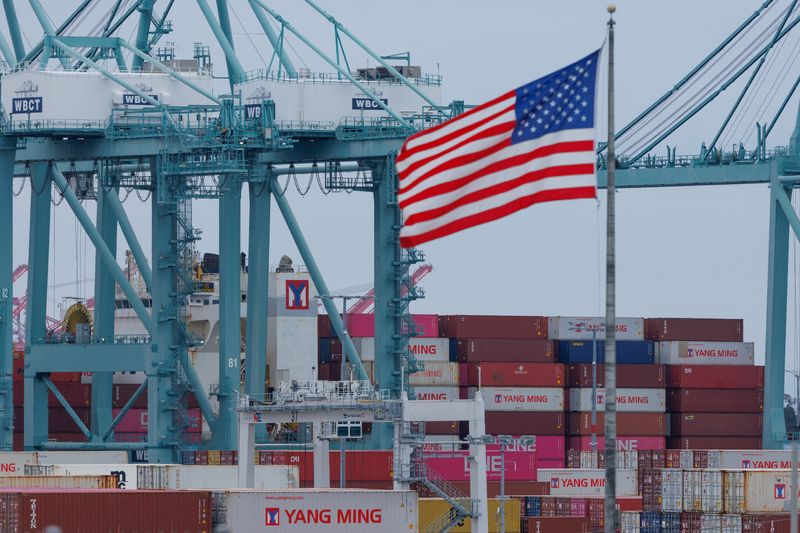By Nicholas P. Brown
(Reuters) -The emails started pouring in on April 9, the day President Donald Trump’s 145% tariff on Chinese imports took effect. Clients were canceling orders for toys from Huntar Company Inc.’s factory in Guangdong Province, China.
But Huntar CEO Jason Cheung, 45, had already halted production at the 600,000-square-foot facility in Shaoguan. He saw the tariff for what it was: an existential threat to his company, which manufactures educational toys bound for the shelves of Walmart and Target, like Learning Resources Inc’s Numberblocks, which help teach kids math.
“I needed to start saving money as soon as possible,” Cheung said. In the four weeks since, he has cut production by 60% to 70%, laid off a third of the factory’s 400 Chinese workers, and reduced hours and wages to those still employed.
Now, he’s pursuing a frantic, long-shot effort to move his operation to Vietnam before the company his dad founded 42 years ago runs out of money.
He figures he has about a month.
Huntar’s plight typifies a crisis facing countless factories in China, where about 80% of toys sold in the U.S. are manufactured, according to trade group The Toy Association. New orders have fallen sharply amid a brutal trade war with the United States that threatens to devastate the sector in both countries.
Huntar is also unique in one key way: based in the U.S., it straddles both sides of the trade war.
On paper, Cheung is Trump’s bogeyman, the Chinese factory owner taking American jobs. But he’s also the U.S. small business owner tariffs were meant to protect. He’s the American son of a Chinese immigrant, running a second-generation family-owned business that employs 15 people in the U.S. – people who would lose their jobs if Huntar falters.
Trump has said tariffs will incentivize companies to reshore manufacturing, or, at least, drive it out of China.
Huntar illustrates why economists say that’s unlikely: a dearth of facilities and workers with toy making expertise in other countries; heavy equipment that’s hard to move and would cost millions of dollars to replace; and, most acutely, no time to solve those hurdles before coffers run dry.
More likely, factories like Cheung’s will simply shut down, a prospect that drove Beijing to the negotiating table with U.S. officials in Geneva over the weekend, three sources familiar with the Chinese government’s thinking told Reuters.
Realistically, China cannot replace U.S. market demand for product categories like toys, furniture, and textiles, which are already feeling the impact of tariffs, one of the officials said. As trade talks began, Trump signaled he was open to cutting China tariffs to 80%.



